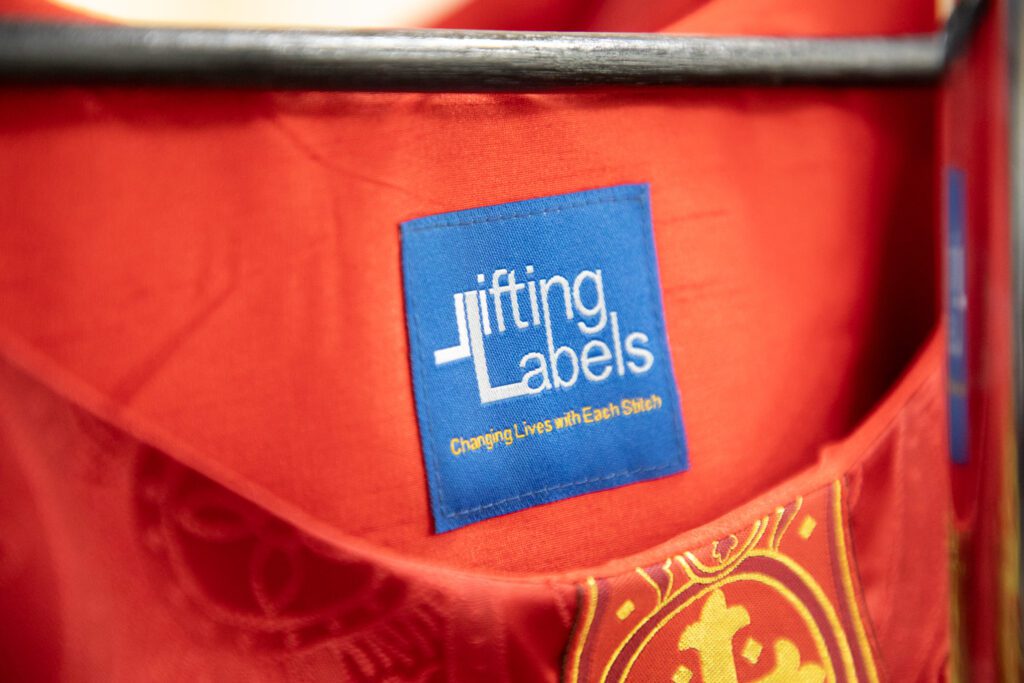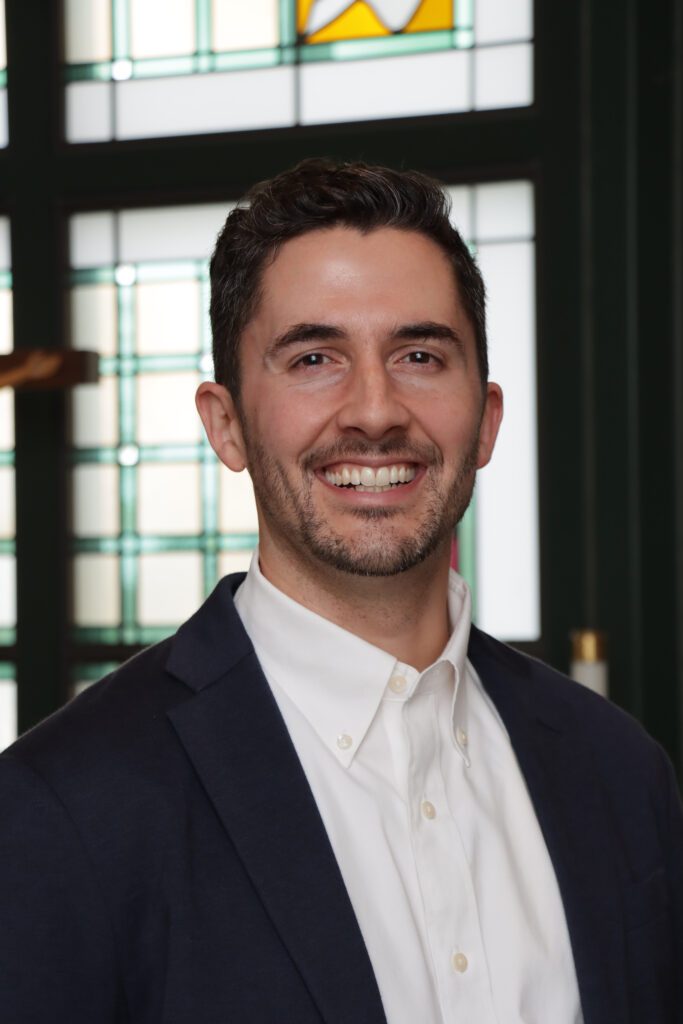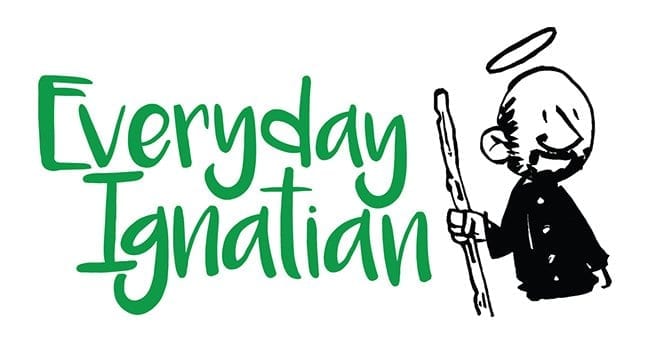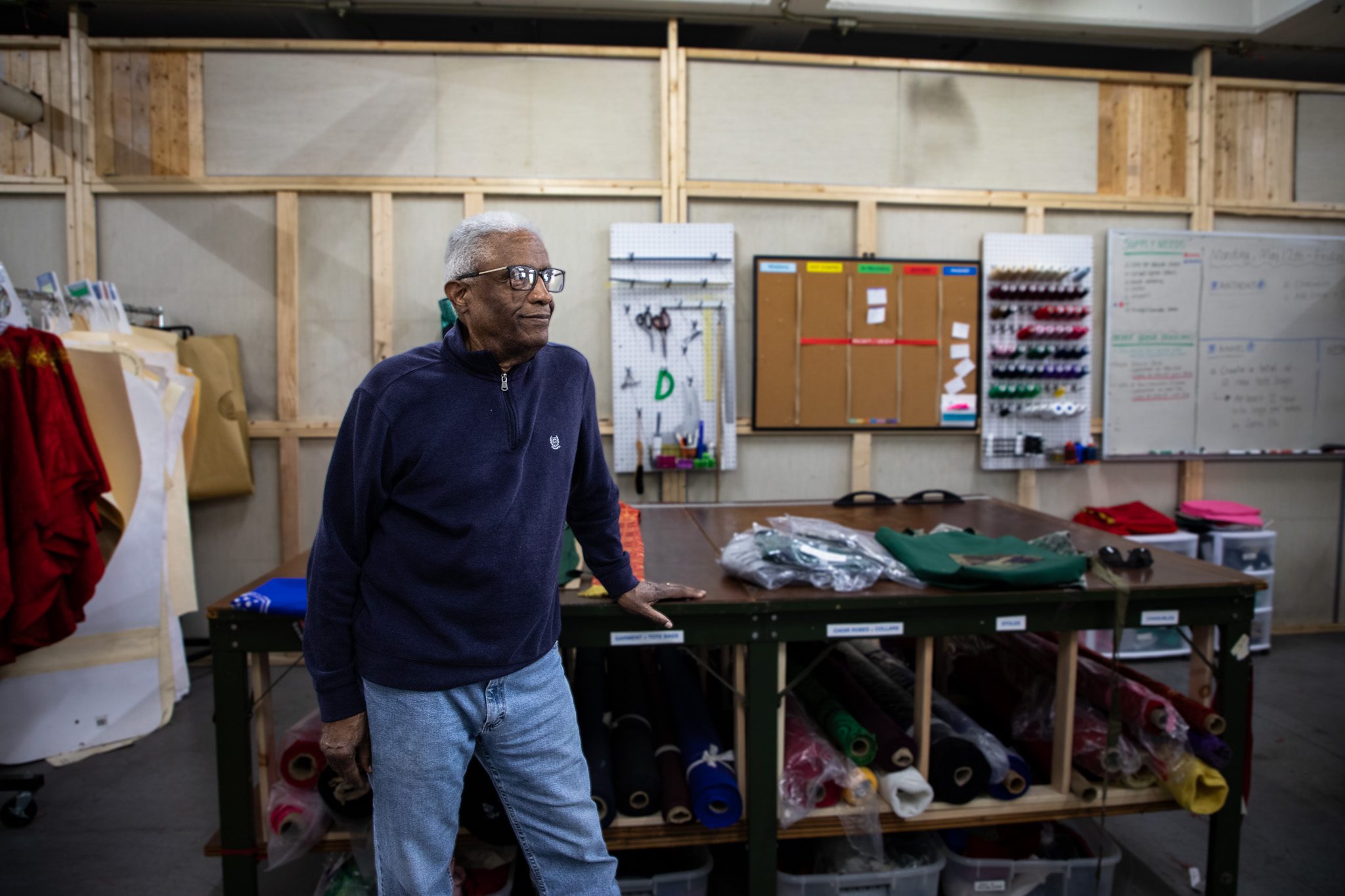
Chester A. France Jr. played the trumpet in the band at Frederick Douglass High School. He is a 1957 graduate of this historic Baltimore city academic institution. His alma mater is one of only two city high schools that admitted African American students during the many years of segregation.
All this to say, Chester is a proud alumnus. And he’s very familiar with those old band uniforms. But nowadays when Chester returns to his alma mater, it’s not as a trumpeter but as the founder of Lifting Labels, a Baltimore-based nonprofit that seeks to reduce poverty, create sustainable jobs and improve the quality of life for folks returning to communities after incarceration.
Chester spent more than three decades in the corporate world. He knows how to put a business plan together, how to talk to and motivate employees, and how to close a sale — skills that have proven essential to the founding and growth of Lifting Labels. But it was his 17 years as the Protestant chaplain with the Maryland Department of Public Safety and Correctional Services that demonstrated to him the importance of what Lifting Labels might be.
Those years of accompaniment gave him a surprising insight. There are three sewing plants within the Maryland prison system. That means there are countless folks in that system who are spending hours and hours refining this crucial trade. These same folks leave the prison system and return home with newfound skills only to discover there are no jobs to be found that will put their expertise to use.
In 2018, Chester decided to change that. He spent the next many months developing a business plan in collaboration with Innovation Works — another Baltimore-based and Jesuit-backed organization that seeks to connect neighborhoods, entrepreneurs, social innovation assets and investors in order to build sustainable local economies throughout Baltimore. Through Innovation Works’ programming and partnerships, Chester was able to secure enough funding to begin turning Lifting Labels into a reality. Their doors officially opened in 2021.
“If it wasn’t for Innovation Works,” Chester told me, “none of this would have happened.”
Chester was giving me a tour of the workshop. It’s one of several small businesses housed in a beautifully repurposed red brick warehouse located in Pigtown, one of the neighborhoods in southwest Baltimore.
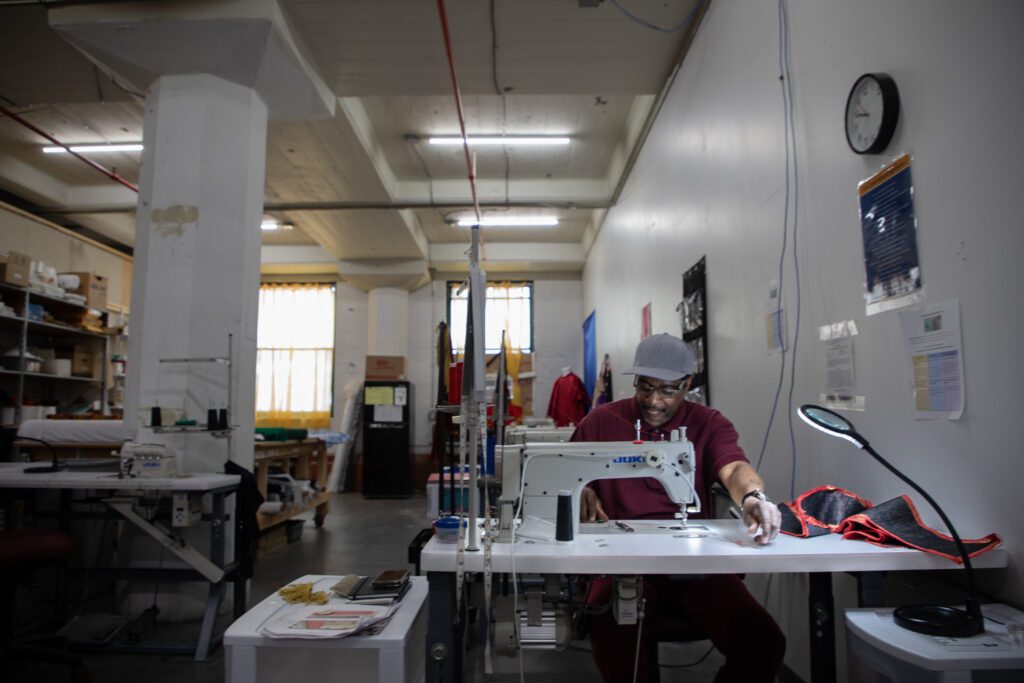
The workshop was quiet when we were there: a rectangular industrial space awash in colorful fabrics, lined with overflowing cardboard boxes and humming with possibility of new ideas and better futures. Mr. Anthony — the lead sewing machine operator — was silently working at one of the handfuls of stations, focused on the thread dancing through his fingers.
Chester showed us the clergy garments that Lifting Labels is perhaps best known for, as well as the graduation stoles and judicial robes and tote bags and more. He stood leaning on an enormous table, showcasing a swatch of camo material that would soon become an apron.
“I never turn down having a conversation,” he was saying. “You never know where it’s going to go.”
I imagine that mentality was a real strength in both his corporate and chaplaincy days. I know it continues to serve him well today. That’s probably how he found himself holding those old band uniforms at Frederick Douglass High School. Chester had been asked to reimagine what those uniforms could be.
So, he brought them back to his small team at Lifting Labels. And now, they’re hoping to collaborate with Frederick Douglass High School to transform those old band uniforms into something new: reversible aprons.
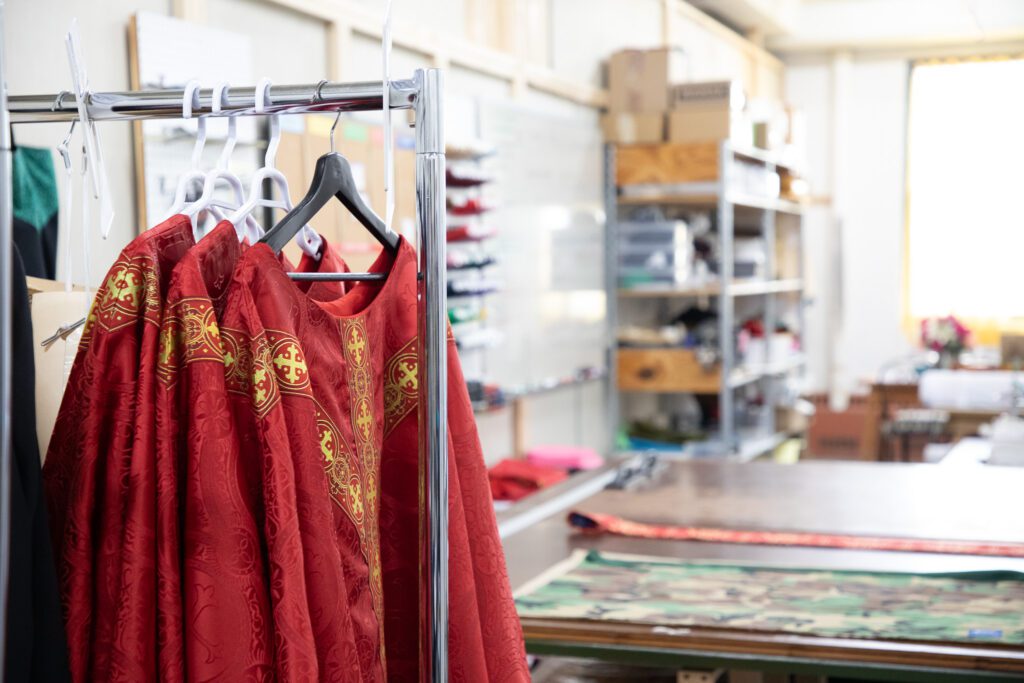
I like that image, that idea of transforming something that was otherwise forgotten, ignored, left to collect dust. I think that’s what Chester and Lifting Labels is really all about. How often do we as a society cast folks to the curb, declare them too far gone and unwelcome in our communities? Certainly, we do that to too many women and men marked by the prison system.
But I think we do that to others, too — all sorts of individuals and communities that we deem unnecessary to our own lives. What a shame. What a tragedy! Because I think one of the many lessons we may take from Lifting Labels is that each of us — no matter our background, our missteps, our skillsets — have the wherewithal not only to contribute to the greater good but to make something beautiful. That’s what they’re doing at Lifting Labels.
I wonder: Where do we need to look to see anew the possibility in those around us and — perhaps just as importantly — within ourselves? Have we been too quick to write someone off? Have we been too quick to forget our own great worth?
“This is a training ground,” Chester told me. In many ways, it has to be. He serves folks who are right out of prison. Lifting Labels reminds them of their inherent dignity and then encourages them on as their lives continue to unfold. “If you find another job,” Chester said, “we’ll help you get there.”
What a beautiful image: the constant unfolding of vocation, encouraged and nurtured and prized but pushed on all the same to strive for the next good thing. No one is written off; everyone instead is woven together.
And the old isn’t abandoned but transformed, made new — a real Easter story.
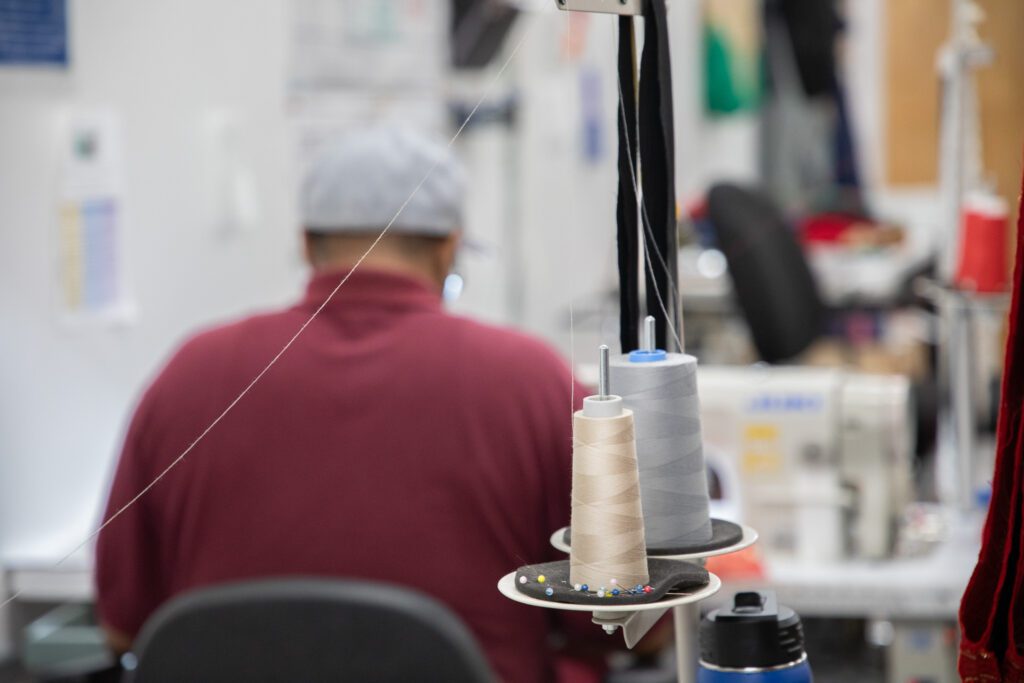
You can learn more about Lifting Labels by clicking here. And discover the Jesuit-backed Innovation Works by clicking here.
Photo by Eric Clayton/Jesuit Conference


